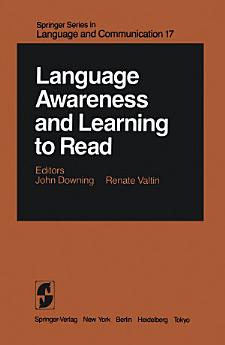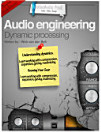Language Awareness and Learning to Read
J. Downing · R. Valtin
дек. 2012 г. · Springer Series in Language and Communication Книга 17 · Springer Science & Business Media
Е-книга
305
Страници
reportОцените и рецензиите не се потврдени Дознајте повеќе
За е-книгава
During the 1970s there was a rapid increase in interest in metacognition and metalinguistics. The impetus came from linguistics, psychology, and psycho linguistics. But with rather unusual rapidity the work from these scientific dis ciplines was taken over in education. This new direction in these various areas of academic study was taken simultaneously by several different investigators. Although they had varying emphases, their work sometimes appears to be over lapping; despite this, it has been rather difficult to find a consensus. This is reflected in the varying terminology used by these independent investigators "linguistic awareness," "metacognition," "metalinguistic ability," "task aware ness," "lexical awareness," and so on. For educators these developments presented a glittering array of new ideas that promised to throw light on children's thinking processes in learning how to read. Many reading researchers and graduate students have perceived this as a new frontier for the development of theory and research. However, the variety of independent theoretical approaches and their accompanying terminologies has been somewhat confusing.
Оценете ја е-книгава
Кажете ни што мислите.
Информации за читање
Паметни телефони и таблети
Инсталирајте ја апликацијата Google Play Books за Android и iPad/iPhone. Автоматски се синхронизира со сметката и ви овозможува да читате онлајн или офлајн каде и да сте.
Лаптопи и компјутери
Може да слушате аудиокниги купени од Google Play со користење на веб-прелистувачот на компјутерот.
Е-читачи и други уреди
За да читате на уреди со е-мастило, како што се е-читачите Kobo, ќе треба да преземете датотека и да ја префрлите на уредот. Следете ги деталните упатства во Центарот за помош за префрлање на датотеките на поддржани е-читачи.








